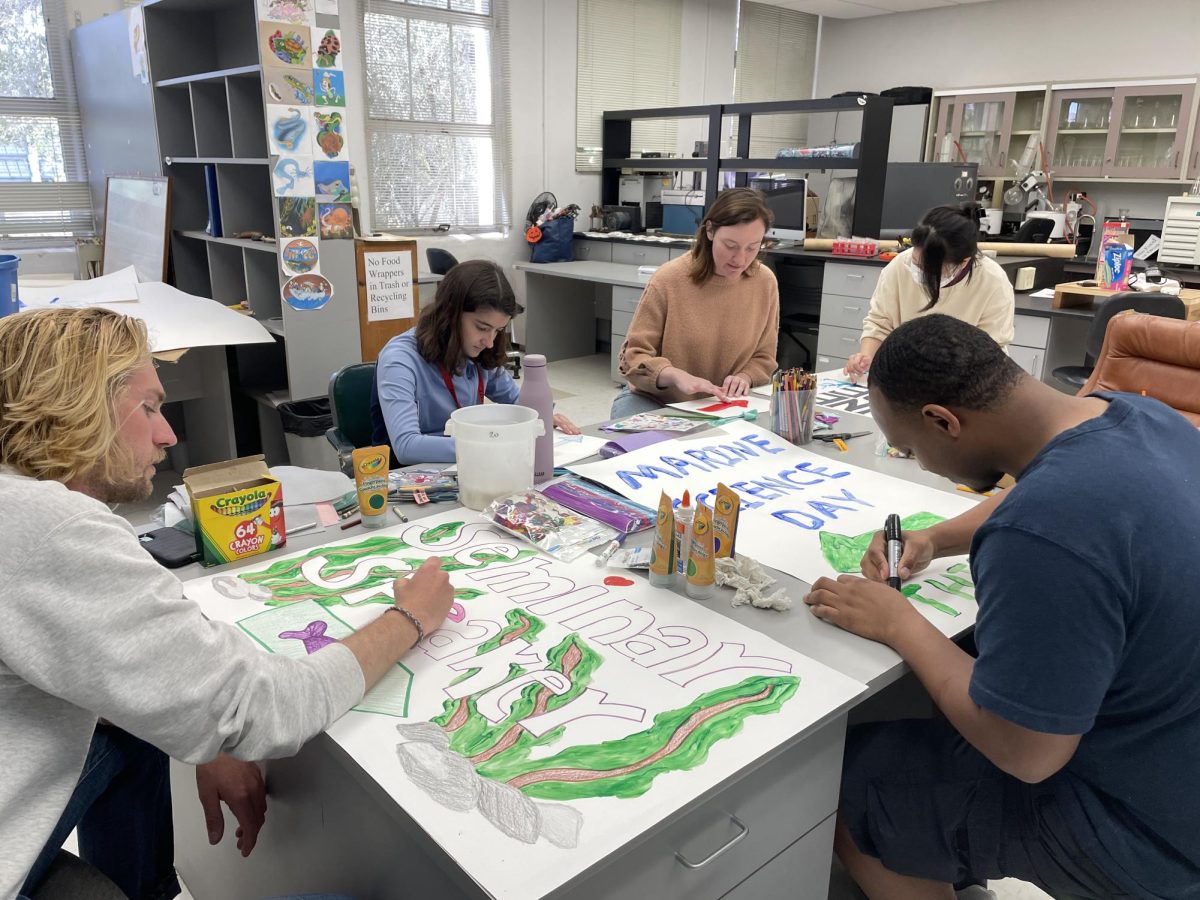Unless you’re looking to get a diving certification or rent a boat for research, San Diego State University’s Coastal and Marine Institute Laboratory is typically closed to the public.
However, once a year, CMIL holds an open house to showcase student research work to the public.
This year’s Marine Science Day will be held on April 27 from 11 a.m. to 3 p.m.; a free event complete with raffles, pizza, touch tanks, research talks and more.
As organized by the members of the Marine Ecology and Biology Student Association, the undergraduate and graduate students hope to raise awareness for marine science research in the local San Diego area.
According to Monica Klopp, a third-year marine ecology graduate student and MEBSA co-secretary, the main goals of Marine Science Day are to showcase marine research work from all the programs and laboratories at CMIL and to show the public how the facility operates.
“I think it’s really cool to be able to show people what’s going on inside,” Klopp said. “We have seawater tanks that are holding animals for experiments. We have an analytical lab that has a whole bunch of cool tech stuff that we use for our research… And we have fun activities for kids so that kids can be involved in some of the things that go on, maybe try to motivate them to be researchers in their own capacity.”
For co-secretary and second-year molecular and cellular biology graduate student Erin Horkan, the best part of Marine Science Day is connecting with attendees and colleagues.
“It’s just really awesome to see how excited the public is about marine science and conservation,” Horkan said. “I think that’s the most special part because, a lot of the time, we’re in our labs or in the field, so it’s a great opportunity as scientists to interact with [the public] and connect with more people that are working in the field.”
MEBSA’s events typically fall into two categories: SDSU student-only and general public outreach.
To enjoy MEBSA’s student-oriented events, you don’t have to be a member; Klopp said anyone can attend their finals week touch tank or seminar speaker events.
In terms of their public outreach, it is typically directed toward local schools and parent Facebook groups.
Last fall, the student organization collaborated with Ocean Connectors, a local nonprofit that educates underserved students about ocean conservation. For the event, volunteers from MEBSA and Ocean Connectors brought marine animals in interactive touch-tanks to elementary schools in southern San Diego County.
For Jesse Humbert, CMIL executive board representative for MEBSA, educating younger audiences is the key to getting the next generation involved with ocean conservation and marine research.
“It’s fun to engage kids in something that they probably are very passionate about, but have never realized they could have a career in it,” Humbert said.
Klopp discovered her passion for marine ecology as a child attending a marine science camp, but hadn’t considered pursuing it as a career until she spent a few months working in a marine biology lab in college.
“That was an opportunity for me to get some real hands on research experience, because all of my interest in the past was just based on what I had done as a kid at the summer camps, but getting that hands on experience really drove me to want to do a master’s degree and do my own research project in the marine field,” Klopp said.
Marine Science Day brings hands-on experience to children through research talks, interactive educational activities and marine touch tanks. However, Klopp said that the event is not just for families, but can be a great opportunity for students looking to become researchers in any field to build professional connections.
“I think Marine Science Day is a great opportunity for anybody who’s at all interested in, not just marine research, but scientific research in general, just to get an idea of what opportunities are out there for [the] future,” Klopp said.
Marine Science Day offers students an opportunity to gain insight into potential career paths and research opportunities, according to Klopp.
Additionally, in terms of joining MEBSA or volunteering at their events, Horkan said members don’t have to be science students to join. She recommends students sign up for the email list by reaching out to mebsa.cmil@gmail.com, and keeping up to date with meeting information via the MEBSA website and their Instagram.
Klopp and Horkan’s number one recommendation for any SDSU student interested in marine life is to attend Marine Science Day.
“Even if they’re not interested in learning about the specific research that’s happening, which is totally fine, here’s a whole bunch of activities that are welcome for everyone,” Klopp said. “It’s a great way to just go out and have a fun day with your family or by yourself. There’s arts and crafts that we’re going to do. There’s a food truck. We have a raffle. So we’re really just trying to have an overall fun event that’s open for everybody.”
For more information on Marine Science Day, see the event flyer or visit the MEBSA website.






